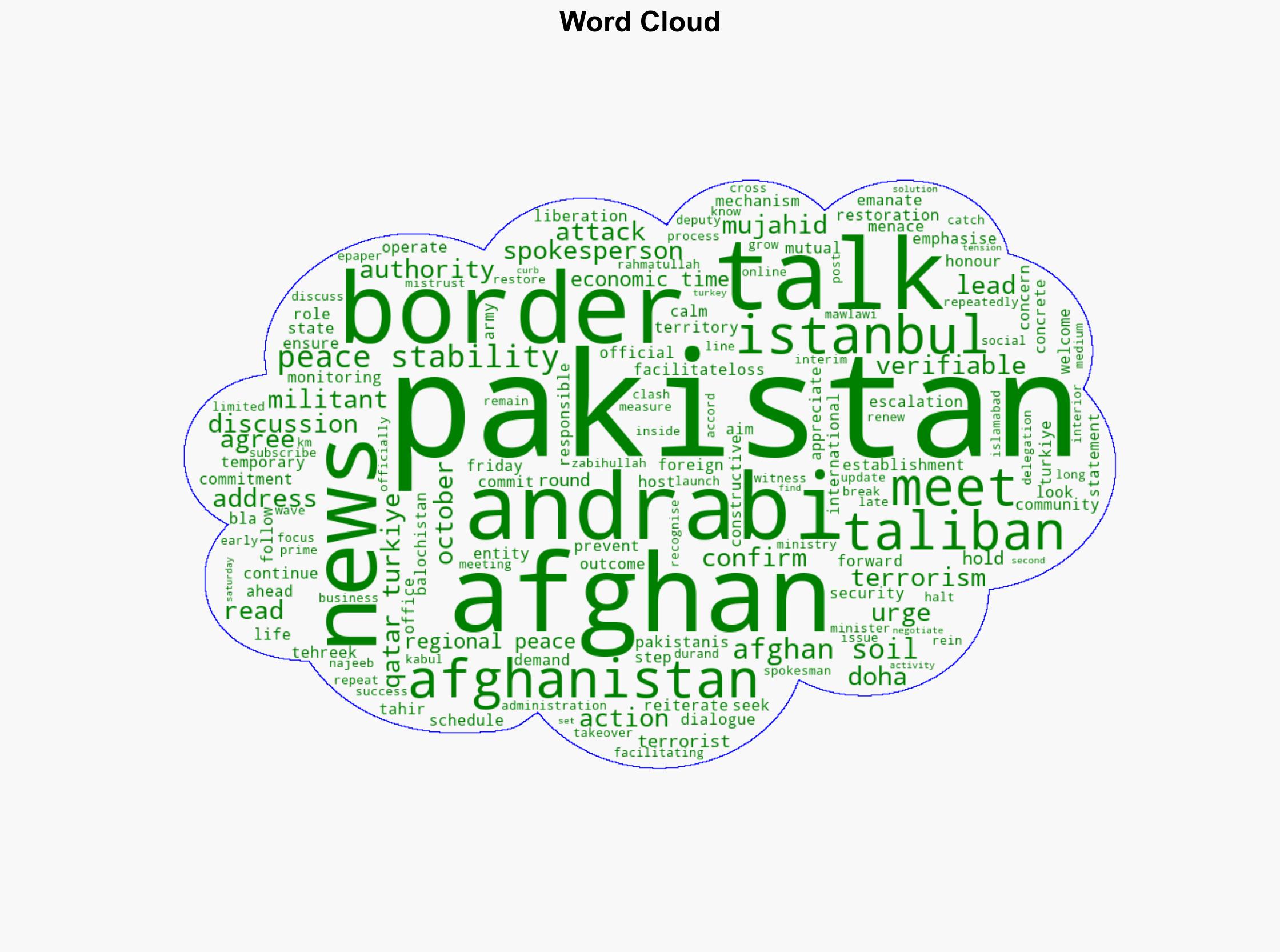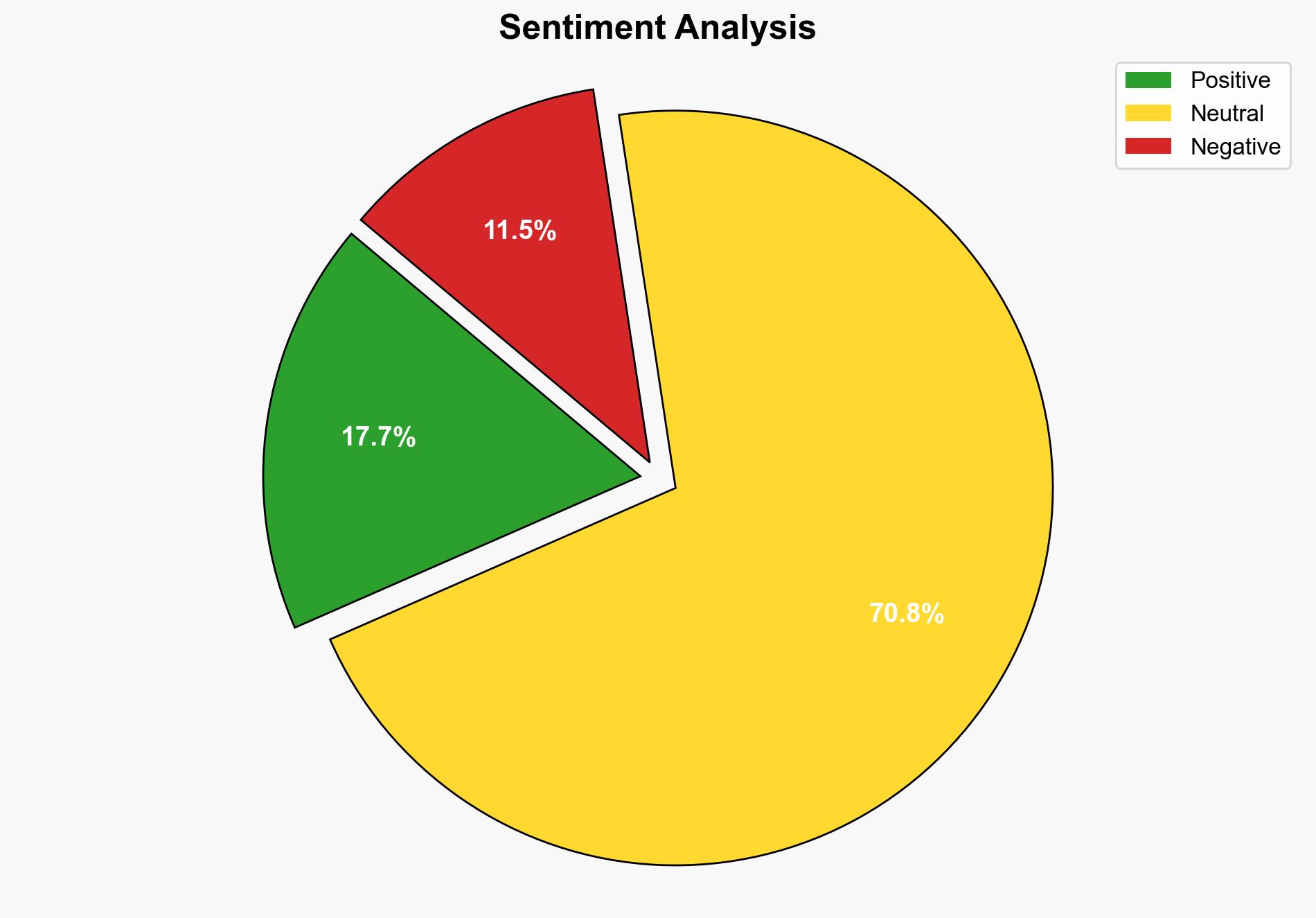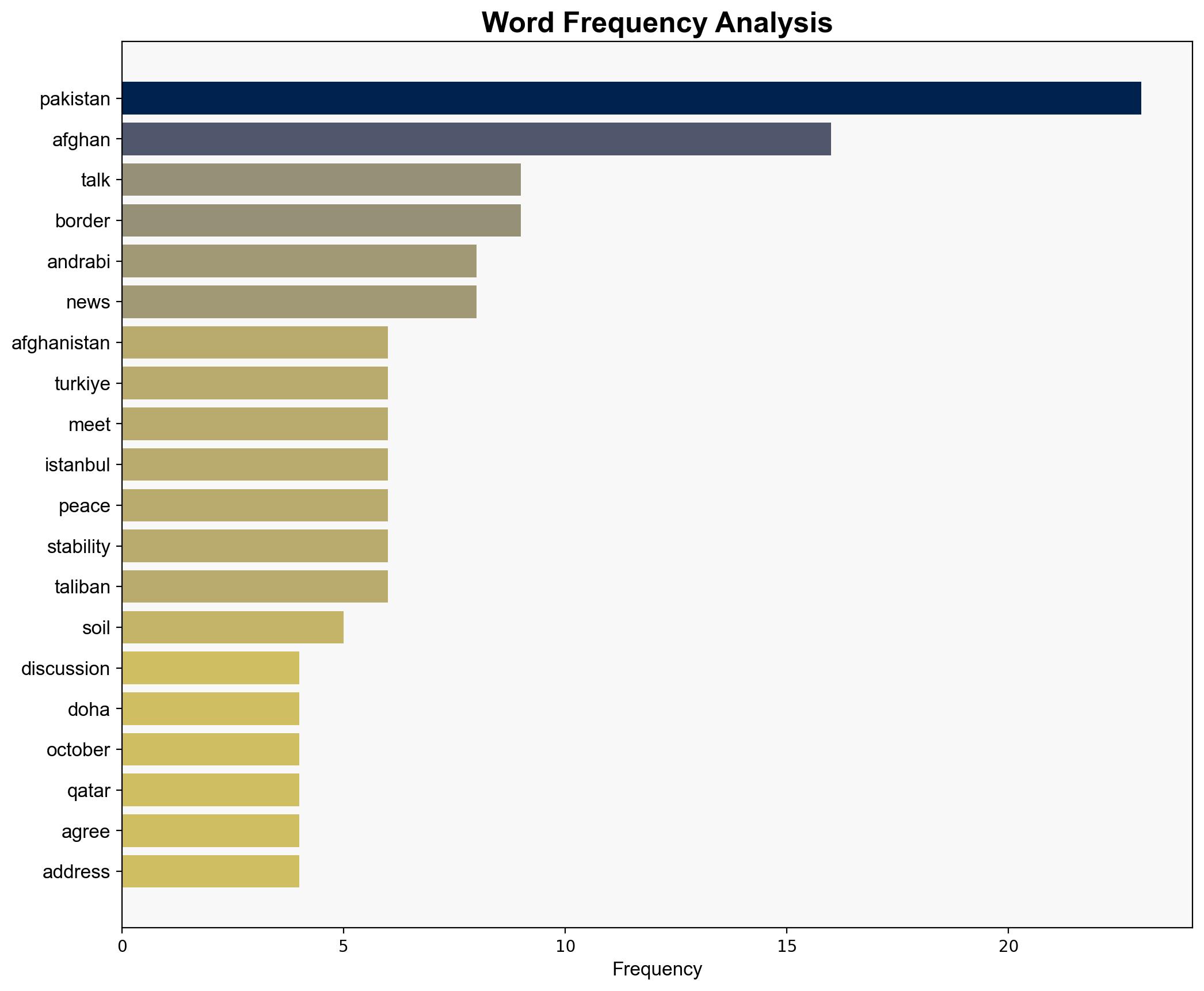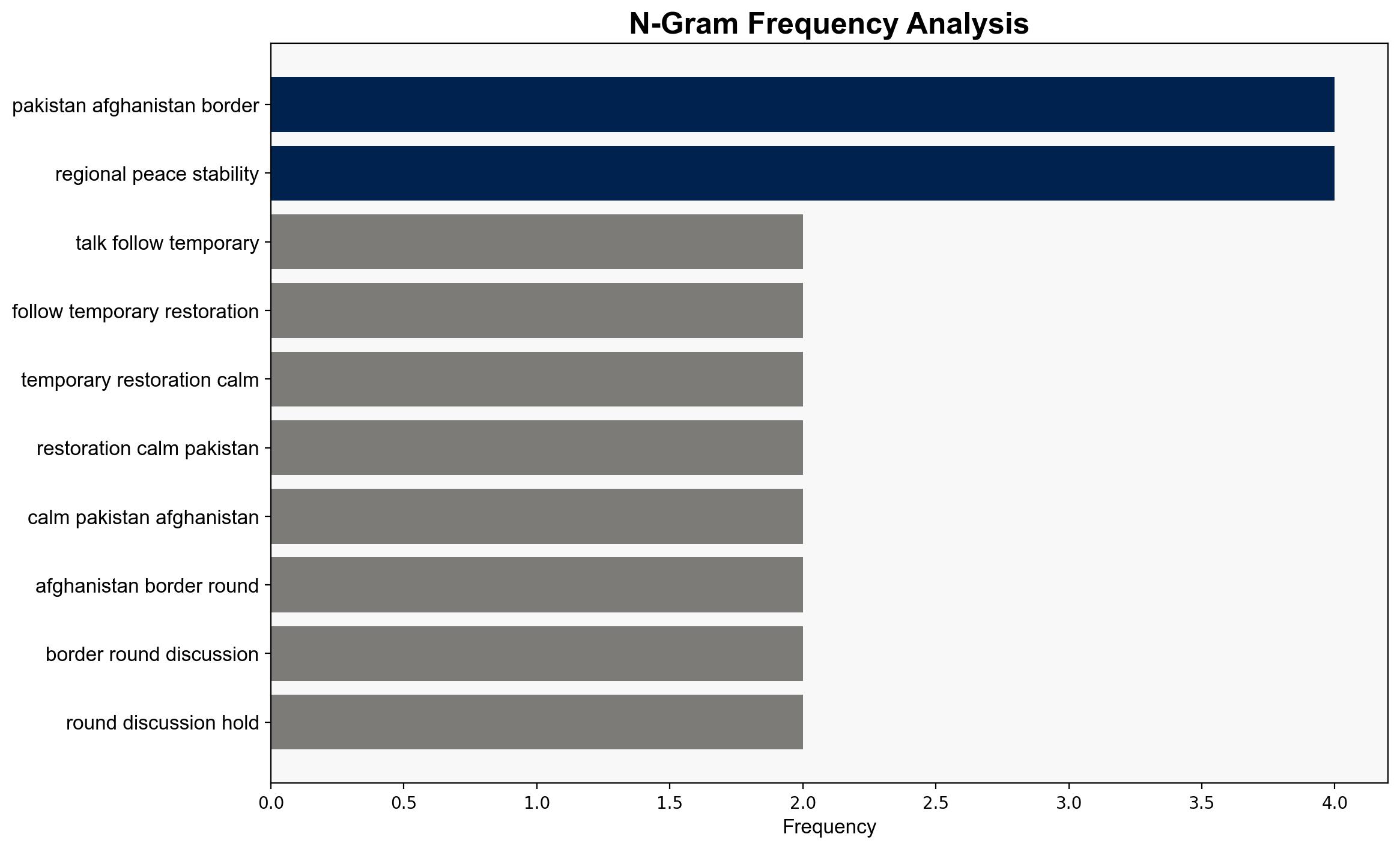Pakistan Afghanistan to hold second round of talks in Turkey to ease border tensions – The Times of India
Published on: 2025-10-25
Intelligence Report: Pakistan Afghanistan to hold second round of talks in Turkey to ease border tensions – The Times of India
1. BLUF (Bottom Line Up Front)
The most supported hypothesis is that the talks in Turkey are a genuine effort by Pakistan and Afghanistan, facilitated by Qatar and Turkey, to establish a verifiable mechanism to curb cross-border terrorism and enhance regional stability. Confidence level: Moderate. Recommended action: Support diplomatic engagement and monitoring mechanisms to ensure compliance and transparency.
2. Competing Hypotheses
1. **Genuine Diplomatic Effort Hypothesis**: The talks represent a sincere attempt by both nations to address mutual security concerns and establish a monitoring mechanism to curb terrorism, facilitated by Qatar and Turkey.
2. **Strategic Posturing Hypothesis**: The talks are primarily a strategic maneuver by Pakistan to apply international pressure on Afghanistan, with limited genuine intent to resolve underlying issues, using the talks as a platform to gain diplomatic leverage.
3. Key Assumptions and Red Flags
– **Assumptions**:
– Both countries have the political will and capacity to implement agreed measures.
– External facilitators (Qatar and Turkey) can effectively mediate and influence outcomes.
– **Red Flags**:
– Historical mistrust and previous failures in similar negotiations.
– Lack of verifiable action from the Afghan side against terrorist entities.
– Potential for talks to be used as a delay tactic by either party.
4. Implications and Strategic Risks
– **Implications**: Successful talks could lead to reduced cross-border terrorism and improved regional stability, benefiting economic and security conditions.
– **Strategic Risks**: Failure to reach a verifiable agreement may lead to increased tensions and potential military escalation. Persistent mistrust could undermine future diplomatic efforts.
– **Cascading Threats**: Prolonged instability may embolden terrorist groups, increase refugee flows, and strain international relations.
5. Recommendations and Outlook
- Encourage continued diplomatic engagement and support from international stakeholders to maintain momentum.
- Develop a robust monitoring and verification framework to ensure compliance with agreements.
- Scenario Projections:
- **Best Case**: Successful implementation of monitoring mechanisms leading to long-term stability.
- **Worst Case**: Breakdown of talks resulting in increased cross-border attacks and regional instability.
- **Most Likely**: Partial success with ongoing challenges in implementation and verification.
6. Key Individuals and Entities
– Tahir Andrabi
– Zabihullah Mujahid
– Mawlawi Rahmatullah Najeeb
– Tehreek-e-Taliban Pakistan (TTP)
– Balochistan Liberation Army (BLA)
7. Thematic Tags
national security threats, cybersecurity, counter-terrorism, regional focus




